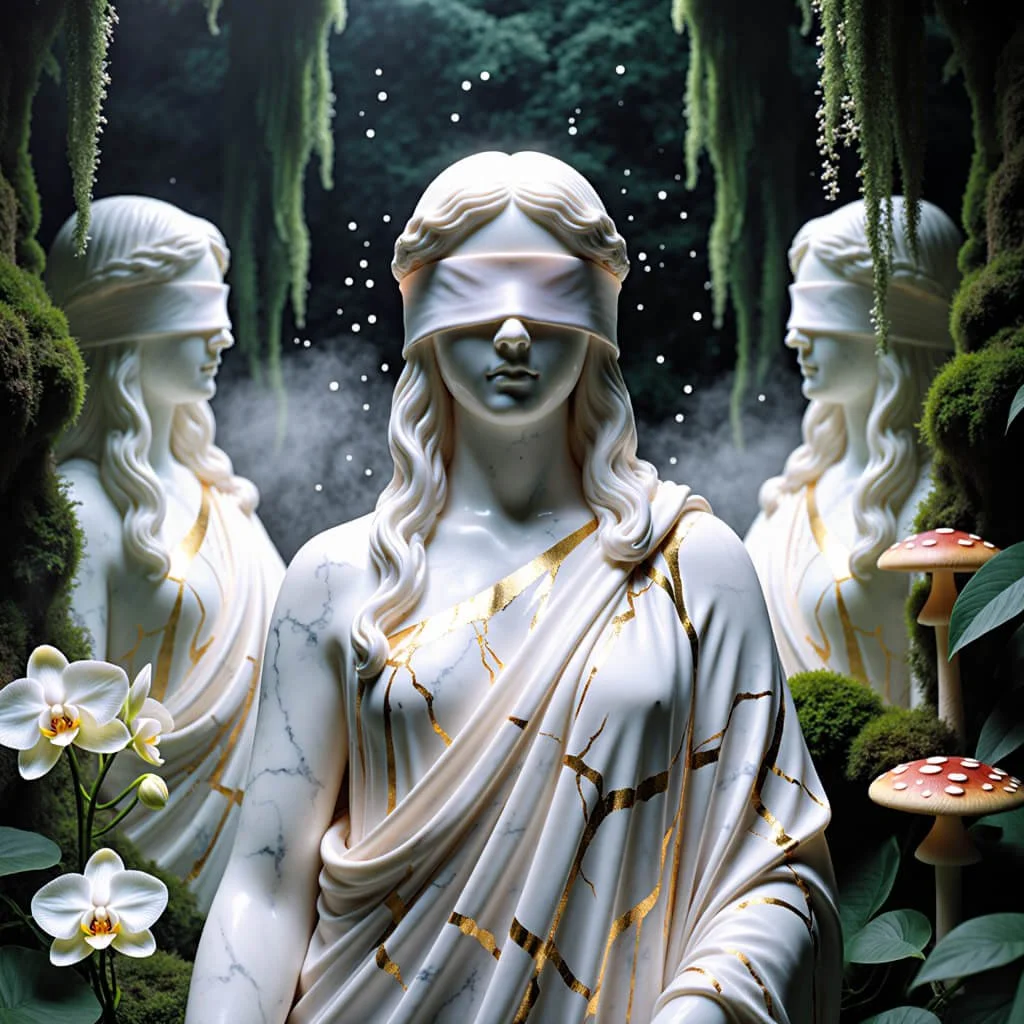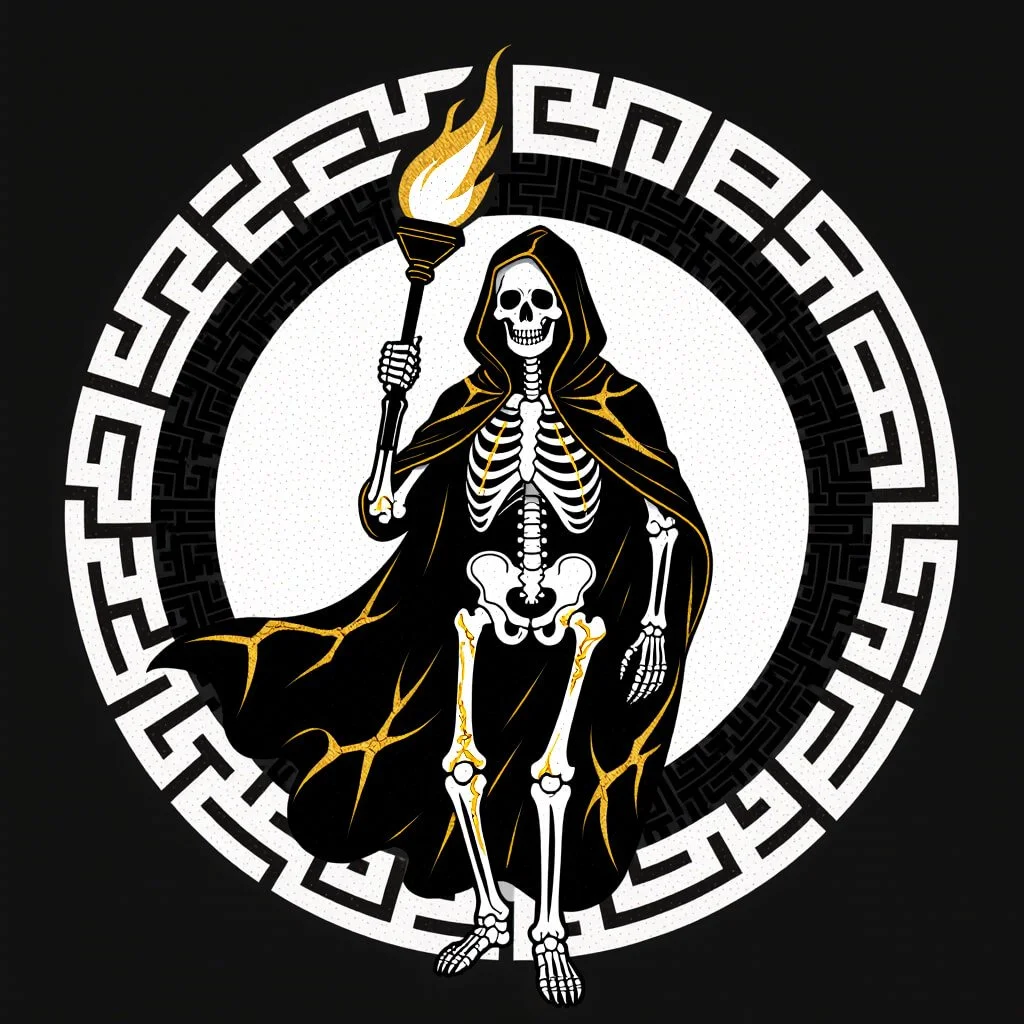Candide: Illuminating the Enlightenment's Absurd Allure
Summary:
Enlightenment's Paradoxical Playground: Step into Voltaire's era, where Enlightenment ideals collided with the absurd. In Part 1, we illuminate the context that birthed "Candide," set against the backdrop of powdered wigs and intellectual fervor.
Unveiling Allegorical Depths: Part 2 reveals the heart of "Candide's" message through the philosophical tug-of-war between optimism and harsh reality. Meet Pangloss and Candide as they navigate a world of satire and social commentary.
Satire as a Weapon: Explore the power of satire in Part 3, where "Candide" dissects institutions, hypocrisy, and societal norms with surgical precision. Voltaire's wit shines as he skewers the absurdities of his time.
Enduring Echoes into Modernity: In Part 4, we bridge the gap between Enlightenment and today. Discover how "Candide's" allegories remain relevant in an age of information overload, challenges to progress, and critical reflection.
Where Wit Meets Wisdom: Conclude your journey with an exploration of "Candide's" lasting impact. This series unveils why the intersections of Enlightenment and absurdity continue to resonate in our cultural and intellectual landscape.
In the 18th-century Europe, François-Marie Arouet, renowned under the moniker Voltaire, emerged as a luminary figure whose intellectual endeavors were intrinsically woven into the fabric of Enlightenment philosophy.
The epoch that bore witness to his literary opus "Candide" was marked by a mélange of historical milestones, philosophical awakenings, and personal tumult that collectively forged the crucible in which his magnum opus would crystallize.
The mid-1700s bore witness to the apex of Enlightenment thought, a period in which reason was exalted, tradition questioned, and inquiry celebrated. As Europe grappled with the aftermath of religious and political upheavals, Voltaire's formative years were a symphony of social and intellectual flux.
Born in 1694, he lived through the zenith of absolutist monarchies and the unraveling of religious dogma, observing with acuity the tension between burgeoning intellectual currents and entrenched establishments.
Voltaire's sojourn in England between 1726 and 1729 proved to be an intellectual epiphany. In the coffeehouses of London, he imbibed the spirit of empiricism and tolerance, imprinted with the principles of John Locke and the scientific revolution that reverberated from the pens of Newton and Boyle.
These influences culminated in his philosophical transformation, incubating the seeds of rationalism that would germinate in "Candide." England's embrace of free expression and empirical inquiry cast a spell on Voltaire, equipping him with the arsenal of reason and skepticism that would define his later work.
The political and social climate of 18th-century Europe became the crucible for Voltaire's intellectual forging. The trial of Jean Calas in 1762—a Protestant falsely accused of murdering his son due to religious prejudice—galvanized Voltaire's commitment to justice and religious tolerance. This catalytic event found its echo in "Candide" through its satirical portrayal of Pangloss's stubborn optimism in the face of a world rife with suffering.
As the Enlightenment exhaled the spirit of reason, "Candide" emerged as a literary embodiment of its ideals.
In 1759, amidst the tumult of the Seven Years' War and the burgeoning anti-authoritarian sentiments, the novella's publication marked a pivotal moment in Voltaire's life. Its audacious critique of religion, politics, and societal norms shook the foundations of the Ancien Régime, resulting in censorship, exile, and a reshaping of Voltaire's role as a provocateur.
In summary, Voltaire's creation of "Candide" was not a solitary endeavor but rather an orchestration of historical currents and personal experiences.
The tumultuous era of Enlightenment, nurtured by the philosophy of Locke, the empiricism of Newton, and the intellectual cross-pollination of England's coffeehouses, converged with Voltaire's own encounters with injustice, censorship, and philosophical transformation.
The result was a literary masterpiece that transcended its time, encapsulating the essence of Enlightenment thought and Voltaire's indomitable spirit in a narrative that continues to resonate through the annals of intellectual history.
Unveiling the Context: Voltaire's Life and Environment During the Creation of "Candide
In the annals of intellectual history, the 18th century serves as a crucible for Enlightenment thought, a period marked by the rise of reason, individualism, and critical inquiry. Amid this transformative epoch, the luminary figure of François-Marie Arouet, known as Voltaire, emerged as a preeminent philosopher, writer, and satirist.
His composition of the seminal novella "Candide" was catalyzed by intricate historical forces, personal experiences, and intellectual ferment.
The cultural milieu that incubated Voltaire's thought was one abounding with intellectual turbulence. The Enlightenment's crescendo, characterized by a fervent pursuit of knowledge, a rejection of dogma, and a desire for empirical evidence, provided a fertile ground for Voltaire's skepticism and incisive critiques.
Born in 1694, he witnessed the crescendo of absolutist monarchies, ecclesiastical power, and feudal privilege. As these old bastions of authority teetered under the weight of intellectual currents, Voltaire's own convictions found resonance within the broader movement.
During the years leading up to the composition of "Candide," Voltaire's personal life was marked by tumultuous undertakings. His propensity for controversial commentary led to periods of exile, including a stint in England, where he absorbed the spirit of free expression and empiricism flourishing in the nation's coffeehouses.
These experiences molded Voltaire into a polemicist and a philosopher, a contrarian unafraid to challenge orthodoxy. As he roamed the European landscape, Voltaire's acerbic wit and wit his incendiary critique of societal institutions earned him both admirers and adversaries, setting the stage for the creation of "Candide."
The environment of 18th-century Europe imbued with ideas emanating from Descartes, Locke, and Newton, further cultivated Voltaire's intellectual trajectory.
The cultivation of reason and skepticism converged to form the bedrock of Enlightenment philosophy, crystallizing in Voltaire's own ideals of liberty, tolerance, and rationality. In the melting pot of these intellectual currents, "Candide" was conceived—a work that would encapsulate the era's existential questions, societal critiques, and the tension between optimism and the harsh realities of life.
In conclusion, Voltaire's "Candide" emerges as a product not only of his personal journey but also as a synthesis of the Enlightenment ethos and its intersection with a rapidly changing world.
The convergence of historical upheavals, intellectual ferment, and Voltaire's own experiences culminated in the creation of a novella that would continue to intrigue, provoke, and resonate through the centuries, embodying the very spirit of Enlightenment thought.
Unmasking Truths: Delving into the Central Message of "Candide"
Within the labyrinthine narrative of Voltaire's "Candide" lies a multifaceted allegory that serves as a mirror to the sociopolitical landscape of 18th-century Europe.
As Enlightenment ideas surged and the Age of Reason dawned, the novella emerged as a vessel for Voltaire's incisive critiques, casting a searing light upon institutions, ideals, and dogmas that clung to society like vestiges of a fading era.
Optimism and Pessimism: Pangloss's Doctrine
At the heart of "Candide" resides the philosophical tug-of-war between optimism and pessimism, personified in the character of Pangloss. Inspired by the philosophical movement of Leibnizian optimism, Pangloss epitomizes blind faith in an ordered universe.
His mantra—"all is for the best in the best of all possible worlds"—exemplifies the philosophical naiveté that pervaded the era.
Voltaire's critique of this doctrine resonates with his contemporary skepticism toward a world rife with social inequalities, religious intolerance, and political corruption.
Candide's Journey: The Fallacy of Optimism
Candide's voyage, spanning continents and traversing suffering, serves as a microcosm of the disillusionment inherent in Enlightenment ideals. His journey is marked by a series of misfortunes that clash with Pangloss's utopian narrative.
From the earthquake in Lisbon to the horrors of war and human greed, Candide is exposed to a world that starkly contrasts with Pangloss's rosy pronouncements. This journey becomes an allegory for the disillusionment of Enlightenment thinkers as they confronted the harsh realities obscured by prevailing philosophies.
Satirical Targets: Institutions and Hypocrisy
Through a lens of satire, Voltaire skewers institutions such as religion, government, and academia. The auto-da-fé scene, a grotesque parody of religious fanaticism, epitomizes the tyranny of organized religion.
Similarly, the portrayal of the fictitious Eldorado—a utopian land untouched by European vices—exposes the folly of colonialism and societal hierarchies.
Voltaire's satire tears away the veils of hypocrisy, revealing the grotesque underbelly of institutions that clung to the old order.
Garden of Eldorado: Philosophical Idealism
The garden of Eldorado, a realm of abundance and contentment, symbolizes an ideal that exists beyond the limitations of reality. Its depiction reflects the Enlightenment's yearning for a utopian world free from human suffering.
However, the garden's fleeting nature, unattainable outside its confines, is a commentary on the incompatibility of idealistic visions with the complexities of human existence—a sentiment that echoed the broader disillusionment with utopian philosophies.
A Mirror to Enlightenment and Beyond
"Candide" transcends being a mere work of fiction; it is a scathing commentary on the socio-political climate of Enlightenment Europe.
Voltaire's allegorical framework serves as a mirror reflecting the cracks in Enlightenment optimism, dissecting the veneer of progress to expose underlying hypocrisy, suffering, and the fallibility of human institutions.
The novella encapsulates Voltaire's acute awareness of the discrepancy between lofty ideals and a world entrenched in turmoil. In doing so, it encapsulates the intellectual ferment of the time while challenging the very fabric of Enlightenment principles.
Resonating Beyond Centuries: How Candide's Allegories Still Connect to the Modern World
As the echoes of Voltaire's quill fade into history, the reverberations of "Candide" continue to resonate through the corridors of time.
Its allegorical brilliance, forged in the crucible of Enlightenment thought, has transcended epochs and cultures, leaving an indelible imprint on both literature and the collective consciousness.
Universal Themes: Beyond Temporal Boundaries
"Candide" endures as a literary touchstone precisely because its themes transcend the confines of its era.
The struggle between optimism and pessimism—between Pangloss's unwavering doctrine and the harsh realities endured by Candide—remains a reflection of the human experience.
In a world grappling with complex moral dilemmas, technological advancements, and global crises, the novella's exploration of human resilience, disillusionment, and the search for meaning continues to find resonance.
Relevance in an Age of Information
In the era of rapid information dissemination, "Candide" serves as a timeless cautionary tale against blind acceptance of dogma.
The satirical thrust against institutions and the hypocrisies they conceal resonates in a world increasingly aware of systemic shortcomings.
The narrative's quest for a utopian Eldorado, mirroring humanity's pursuit of idealized states, offers a mirror to the constant quest for perfection that persists in various facets of contemporary society.
Challenges to Progress and Enlightenment
"Candide" underscores the perennial struggle between idealistic visions and the complexities of reality. In a world grappling with cultural clashes, economic disparities, and environmental challenges, the novella's exploration of the tensions between philosophical ideals and lived experiences remains strikingly relevant.
Just as Enlightenment thinkers confronted the chasm between their ideals and the world's imperfections, modern society continues to navigate the discord between aspirations and the intricacies of implementation.
Legacy of Critical Thought and Satire
The legacy of "Candide" is intertwined with its legacy as a masterpiece of satire and critical thought. Its narrative techniques, vivid characterizations, and deftly woven allegories have inspired subsequent generations of writers, thinkers, and artists. The spirit of probing, questioning, and challenging dominant narratives—so integral to the Enlightenment—is enshrined in the very fabric of "Candide," fostering a legacy of critical inquiry that transcends temporal bounds.
In conclusion, "Candide" occupies a rarefied position in the pantheon of literature, its relevance undiminished by the passage of centuries. Voltaire's keen insights, expressed through allegory, reverberate with themes that have not lost their potency.
As societies grapple with shifting paradigms and navigate the ever-evolving human condition, the allegorical landscape of "Candide" continues to offer a mirror, reflecting both the enduring challenges of the past and the pressing questions of the present.
Just as Voltaire used the novella to engage in a profound dialogue with his era, so too does "Candide" beckon to the modern world, inviting us to engage in a perpetual discourse on the human experience and the ceaseless pursuit of enlightenment.
Embrace Candide's Enlightenment Today
As we bid adieu to our exploration of Voltaire's "Candide," we find ourselves at the crossroads of history and modernity, of wit and wisdom. This literary voyage through the Enlightenment's paradoxes and absurdities has illuminated not only the past but also the present. The allegories that Voltaire meticulously wove into his narrative remain relevant in our world of rapid change and perpetual inquiry.
"Candide" challenges us to question, to laugh at the folly of blind optimism, and to ponder the dichotomy between ideals and the human experience. It beckons us to confront institutions with a critical eye, to seek deeper understanding beyond appearances, and to embrace the complexities of our reality.
So, dear readers, as you reflect on the pages turned and the words absorbed, remember that "Candide" is more than a relic of the past. It's an invitation to engage, to dialogue, and to be vigilant against the allure of blind certainty. As we move forward, let us carry the spirit of Enlightenment within us, celebrating reason, skepticism, and the pursuit of truth.
And now, to further your journey into the world of intellectual exploration, we invite you to visit the Tulumination store. Delve into a curated collection of books, art, and thought-provoking pieces that ignite the mind and stir the soul. Just as "Candide" dared to question, to satirize, and to challenge, so too can you embark on a voyage of discovery through the offerings at Tulumination. Engage in the dialogue, embrace the wisdom, and illuminate your path toward a deeper understanding of the world around you.
The Enlightenment's flame still burns, and it's waiting for you to carry it forward.
Visit the Tulumination store today, where enlightenment meets inspiration.































































